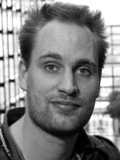Presentation: Tweet"Sonic Pi - Teaching Kids with Music Programming"
In the UK the school education system is experiencing radical reform. This is particularly the case with computing. There's momentum to separate ICT from Computer Science and to place specific emphasis on the teaching of Computational Thinking. In broad terms, we shouldn't just be teaching our children office skills such as formatting Word documents – we should be teaching them how to code and create their own software.
This talk introduces Sonic Pi, a music language and environment running on the Raspberry Pi specifically focussed on introducing core Computer Science concepts for KS3 students. Sonic Pi emphasises the importance of creativity in pedagogic contexts enabling learners to exhibit self-agency through the application of the taught ideas in musical works they create and own.
Sonic Pi is currently being trialled by schools. We will discuss some early observations and initial success stories of using music and composition as a means for both introducing technical concepts and improving engagement and interest.
Download slides
